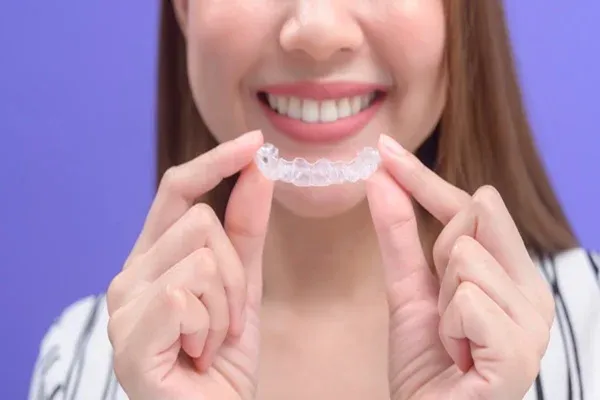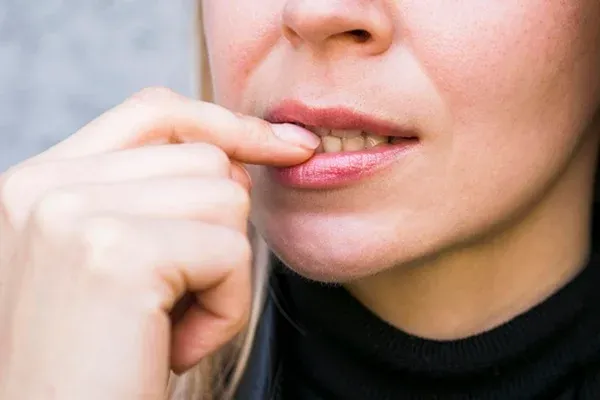How to ensure Lasting Results with Braces or Invisalign
Dr. Hoss Abar
Achieving a straight, healthy smile is a goal for many people, and braces or Invisalign are two of the most popular methods. However, the real challenge begins after treatment ends—ensuring that the results last for a lifetime. Whether you've chosen traditional braces or the more discreet Invisalign aligners, maintaining the alignment of your teeth requires dedication and care. In this blog, we'll explore the key steps to help you preserve your beautiful smile and avoid setbacks after your orthodontic treatment is complete. With the right habits and commitment, you can enjoy lasting results and keep your teeth in perfect alignment for years to come.
The Role of Consistency in Treatment
Braces
- Attend regular check-ups and make necessary adjustments.
- Avoid foods that can damage the braces (e.g., hard, sticky, or chewy foods).
- Follow your orthodontist's instructions for wear and care.
Invisalign
- Wear aligners for 20-22 hours daily, only removing them for meals and cleaning.
- Switch to new aligners as instructed to maintain progress.
- Keep track of your aligners and avoid losing or damaging them.

General Consistency Tips
- Stick to your treatment plan and visit your orthodontist regularly.
- Be mindful of your oral hygiene to prevent complications.
- Avoid habits like chewing on pencils or grinding your teeth that can interfere with treatment.
Maintaining Oral Hygiene during Treatment
Braces
- Brush after every meal: Food can get trapped in braces, leading to plaque buildup and cavities. Brush at least thrice daily using a soft-bristled toothbrush and fluoride toothpaste.
- Floss daily: Use floss threads or special orthodontic floss to clean between your braces and wires.
- Use mouthwash: Antiseptic or fluoride mouthwash can help reach areas that brushing may miss and prevent decay.
- Clean your braces: Use a proxy brush to clean the brackets and wires, ensuring no food particles remain.
Invisalign
- Clean aligners regularly: Rinse them with lukewarm water and clean them with a soft toothbrush. Avoid using toothpaste, as it may scratch the aligners.
- Brush and floss your teeth: Clean your teeth thoroughly before returning the aligners. This prevents food buildup and keeps your teeth clean.
- Avoid sugary drinks: Drink water while wearing your aligners. Sugary or acidic beverages can cause cavities if trapped between the aligners and your teeth.
- Soak aligners periodically: Use an Invisalign cleaning solution or a mild, non-abrasive cleaner to keep the aligners fresh.
General Tips
- Stay hydrated: Drinking water helps prevent dry mouth, which can lead to plaque buildup.
- Avoid sticky or sugary foods: These can adhere to your braces or aligners, making it harder to clean your teeth properly.
- Use a water flosser: This can help clean around braces or Invisalign trays, making it easier to remove debris.
Wearing Retainers after Treatment: Why It's Essential
Prevent Teeth from Shifting
After braces or Invisalign, your teeth may still want to return to their original positions. Retainers help keep them in place while the bone and tissue around your teeth stabilize.
Maintain Long-Term Results
Retainers are critical for ensuring that the alignment achieved through your treatment lasts. Without consistent wear, your teeth can gradually shift over time, undoing progress.
Support Bone and Tissue Healing
Your teeth aren't the only part that moves during orthodontic treatment; the surrounding bone and gums also need time to adjust. Wearing a retainer helps ensure your teeth stay in their new positions.
Consistency Is Key
Retainers should be worn as prescribed, especially in the first months after treatment. Neglecting to wear them as recommended can result in shifting and a longer time to re-stabilize your teeth.
Long-Term Commitment
Even after the initial adjustment period, some orthodontists may recommend wearing retainers at night for the rest of your life to ensure lasting results.
Types of Retainers
- Fixed retainers: Bonded to the back of your teeth for long-term wear, offering a discreet option for maintaining alignment.
- Removable retainers: Can be taken out for eating and cleaning but should be worn as directed by your orthodontist to maintain results.
Dietary Considerations for Braces or Invisalign Users
For Braces
- Avoid sticky and chewy foods: Foods like gum, caramel, or toffee can get stuck in your braces and are hard to clean.
- Limit hard and crunchy foods: Nuts, candies, and popcorn can break or damage the brackets and wires.
- Cut food into smaller pieces: Large or tough-to-chew foods, such as apples or raw carrots, should be cut into smaller, bite-sized pieces to prevent bracing damage.
- Be cautious with acidic foods and drinks: Citrus fruits, soda, and vinegar-based foods can irritate your gums, especially if caught in your braces.
For Invisalign
- Remove aligners before eating or drinking: Always remove your aligners before eating or drinking anything other than water to avoid staining or damaging the aligners.
- Avoid sugary drinks: Sodas, juices, and other beverages can cause cavities and plaque buildup when trapped between your aligners and teeth.
- Be mindful of staining foods and drinks: Coffee, tea, and red wine can stain your aligners, so it's best to avoid them or brush your teeth before reinserting your aligners.
General Tips
- Drink plenty of water: Staying hydrated helps prevent a dry mouth and rinses away food particles.
- Opt for softer foods: Yogurt, mashed potatoes, and smoothies are easier on your braces and won't risk damaging your orthodontic appliances.
- Brush your teeth after meals: Whether you have braces or Invisalign, brushing your teeth after eating will help prevent food from getting trapped and ensure your teeth stay clean.
The Importance of Regular Check-Ups with Your Orthodontist
Ensure Progress Is on Track
Regular check-ups allow your orthodontist to monitor how well your braces or Invisalign treatment progresses. They can make necessary adjustments to ensure you stay on schedule to achieve the desired results.
Address Issues Early
Frequent visits help catch potential issues early, such as broken brackets, lost aligners, or discomfort. Early intervention can prevent minor problems from becoming major setbacks.
Adjust Treatment as Needed
Your orthodontist may need to adjust your braces or Invisalign aligners based on your treatment progress. Regular appointments ensure your plan is updated to meet your needs at every stage.
Keep Your Teeth Healthy
Your orthodontist will check for signs of gum disease, cavities, or any other dental health issues that may arise during treatment. This helps prevent long-term dental problems.
Provide Professional Cleaning
Cleanings at the orthodontist's office help remove plaque and tartar buildup that regular brushing may miss, ensuring your teeth remain healthy throughout the treatment.
Ensure Retainer Fit and Effectiveness
If you're transitioning to retainers, your orthodontist will check their fit and effectiveness to ensure they maintain your smile properly after treatment.
Stay Motivated
Regular visits can encourage and motivate you by showing how far you've come. Your orthodontist can also give you tips for managing any challenges along the way.
Lifestyle Habits That Can Affect Your Results
Teeth Grinding (Bruxism)
Grinding your teeth, especially at night, can cause your teeth to shift or damage your braces and aligners. Wearing a mouthguard at night can help protect your teeth and orthodontic treatment.
Chewing on Non-Food Items
Biting on pencils, pens, or fingernails can damage your braces or misalign your teeth. Avoid these habits to prevent setbacks in your treatment.

Smoking
Smoking can stain your teeth and affect your oral health, leading to gum disease or plaque buildup, which can interfere with your braces or Invisalign treatment results.
Poor Oral Hygiene
Neglecting to brush and floss regularly can lead to cavities, gum disease, and plaque buildup, which can negatively impact your treatment progress and the health of your teeth.
Skipping Retainer Wear
Not wearing your retainer as prescribed after treatment can cause your teeth to return to their original positions. Consistent retainer use is essential for maintaining your results.
Dietary Choices
Eating sticky, hard or chewy foods (for braces) or drinking sugary beverages (for Invisalign users) can harm your braces, aligners, or teeth, causing delays or complications in your treatment.
Lack of Follow-Up Care
Missing scheduled check-ups with your orthodontist can delay adjustments, resulting in a slower treatment process and potential misalignment issues.
Stress
High stress levels can contribute to habits like teeth grinding or neglecting oral care, which can negatively affect orthodontic results. Managing stress can support your treatment success.
Not Wearing Aligners Properly (for Invisalign users)
Failing to wear your Invisalign aligners for the recommended 20-22 hours daily can slow down or derail your progress. Ensure you're following the guidelines for the best results.
Maintaining good habits and following your orthodontist's advice throughout treatment is essential to achieving lasting, positive results.
Contact your Pinole dentist, Dr. Hoss Abar, DDS, MSD at Abar Orthodontics, to learn more about how to ensure lasting results with braces or invisalign.
Resource:
Orthodontic Preparation for Surgery
*This media/content or any other on this website does not prescribe, recommend, or prevent any treatment or procedure. Therefore, we highly suggest that you get the advice of a qualified dentist or other medical practitioners regarding your specific dental condition.*
More To Explore
About Us
We believe that every patient deserves to feel confident about their smile. Years of experience creating beautiful and flawless smiles.
Opening Hours:
Monday - Thursday: 8:00 AM - 5:00 PM
Friday: 8:00 AM - 12:00 PM
Saturday - Sunday: Closed
Abar Orthodontics, Pinole, CA
1500 Tara Hills Drive., Suite 204
Pinole, CA 94564
Abar Orthodontics, San Leandro, CA
145 East 14th street., #100
San Leandro, CA 94577
© 2026Abar Orthodontics | All rights reserved | Powered by:Vigorant, Inc.
